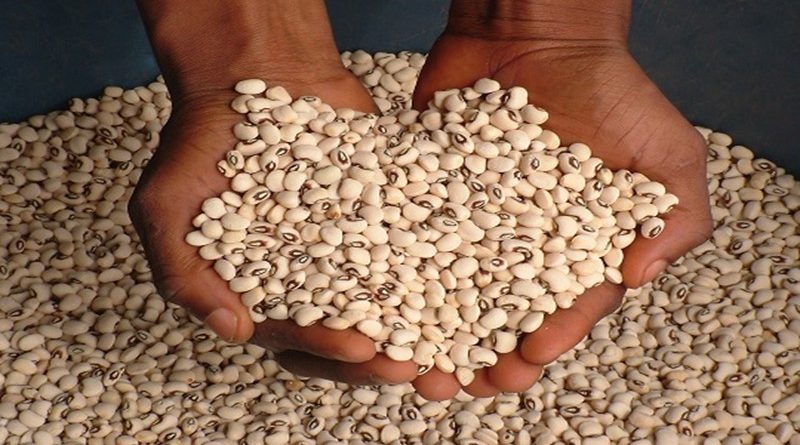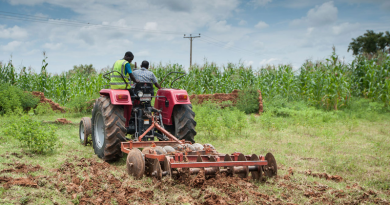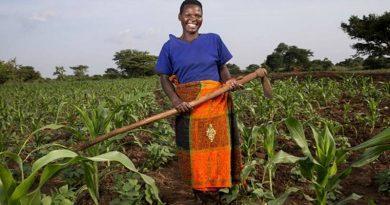Federal Government reaffirms commitment to quality seeds for farmers
The Nigerian Minister for Agriculture and Rural Development, Alhaji Muhammad Sabo Nanono stated that quality seed is a key input towards enhancing Agricultural productivity and ensuring food security, job creation and economic growth in Nigeria.
Speaking during the National Seed Retreat organised by the National Agricultural Seeds Council (NASC), at the IAR Conference Hall, Ahmadu Bello University, Zaria, Kaduna State, the Minister noted that seed is the carrier of the genetic potential of the crop plant that determines the upper limit of yield and the ultimate productivity of fertilizers, agro-chemicals and other inputs including types of machinery and farming techniques.
Nanono informed that the Ministry has the responsibility to provide a conducive policy environment of ensuring the sustenance of a virile National Seeds System and to enable a credible, dynamic, competitive and relevant industry which provides healthy and high-quality planting materials for Nigerian farmers and for export irrespective of their location.
The Minister emphasised that the National Agricultural Seeds Council (NASC) in partnership with all relevant stakeholders is responsible for seed industry development and regulation in the country and has over the years been involved in various activities towards ensuring the development of the nation’s seed sector.
He pointed out that the overall set of policy principles of the Agriculture Promotion Policy (APP) , would concentrate on providing an enabling environment for stakeholders at the federal and state level to play their distinctive roles.
He also said that the policy would provide a conducive legislative and agricultural knowledge framework, macro-policies, security-enhancing physical infrastructure and institutional mechanisms for coordination, access to adequate inputs, finance, information on innovation, agricultural services and markets.
Alhaji Sabo Nanono tasked the Stakeholders on the need to render services for posterity, “Your presence here as stakeholders is simple but are service to posterity because with a growing population expected to reach above 400 million in a few years from now we must plan ahead. Recognize the importance of this sub-sector to the overall sustenance of national plan through agricultural productivity”.
He further said, “we are all challenged today to identify, discuss determine the type of interventions needed (technological, regulatory and others) to make quality seeds available to farmers through sustainable systems and construct roadmap, with specific recommendations, to guide a sound and sustainable dissemination strategy for improved crops to resource-poor farmers in Nigeria in particular and West in general “.
On his part, the Chairman, Senate Committee on Agriculture, Senator Abdullahi Adamu said that there is need to focus more on locally made seed because they have been tested and proven in the Seeds sub-sector and assured that the bills before both chambers of the National Assembly would soon be passed into laws.
The Chairman, House Committee on Agric. Production and Services, Hon. Danduste Muntari said that quality Seed is vital in the process of achieving food sufficiency, job creation and would boost the internally generated revenue in the country. He also lauded President Muhammadu Buhari’s agenda in the Agricultural sector which he said would change the narrative on the economy shifting from the oil sector to the Agricultural sector.
The Director-General, National Agricultural Seeds Council (NASC), Dr Philip Olusegun Ojo said that NASC has introduced the National Seed Tracker, the turn-key electronic Seed Authentication system, developed a Five (5) year strategic plan and up-graded the central seed testing laboratories to meet international Standards.
Dr Philip Ojo said NASC has commenced effort towards the introduction of a Legislation for the Protection of New Varieties of Plant (PVP) in Nigeria as well as firming upon its membership of international organizations like the Organization for Economic Cooperation and Development (OECD), International Seed Federation (ISF) International Seed Testing Association (ISTA).
He advocated for the quick passage of the PVP law to complement the existing Seed Act for the establishment and maintenance of strong legal protection for seed and plant products and its enforcement so as to deter those who engage in illegal seed practices.




